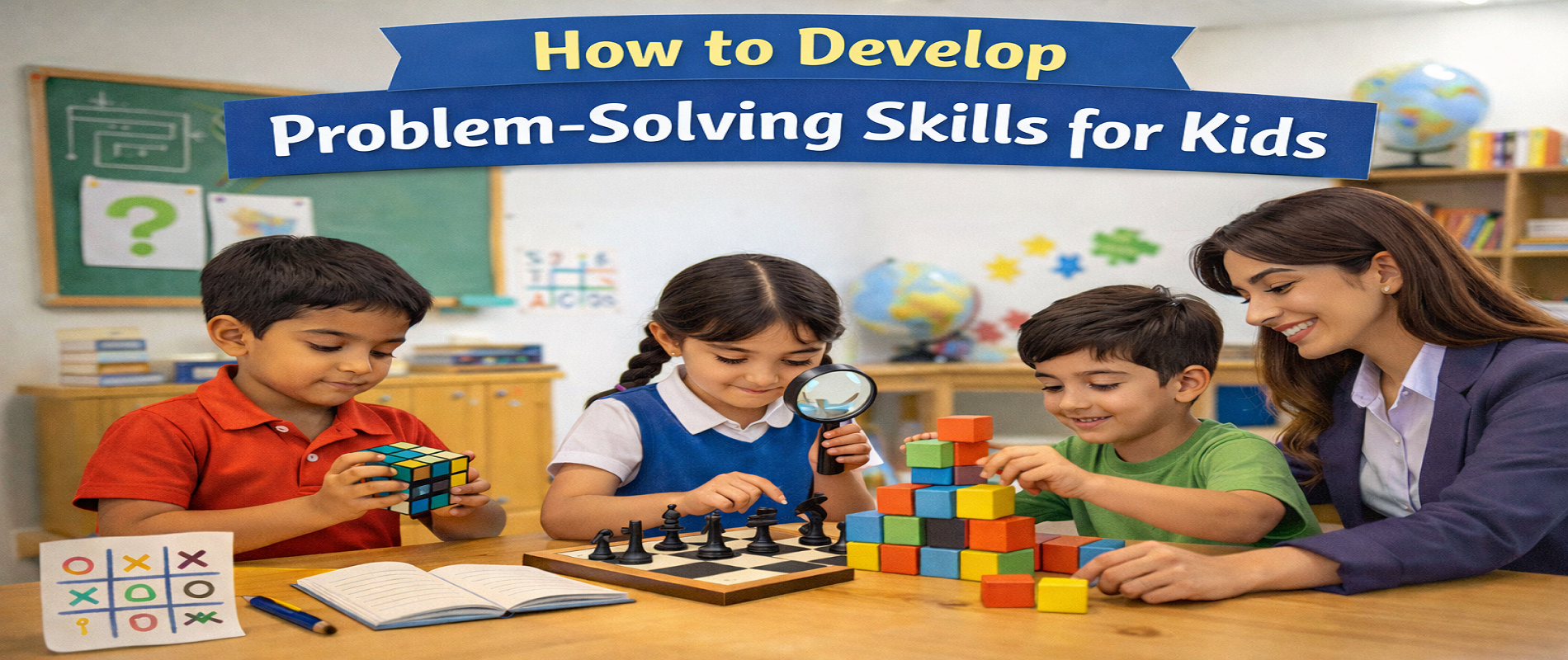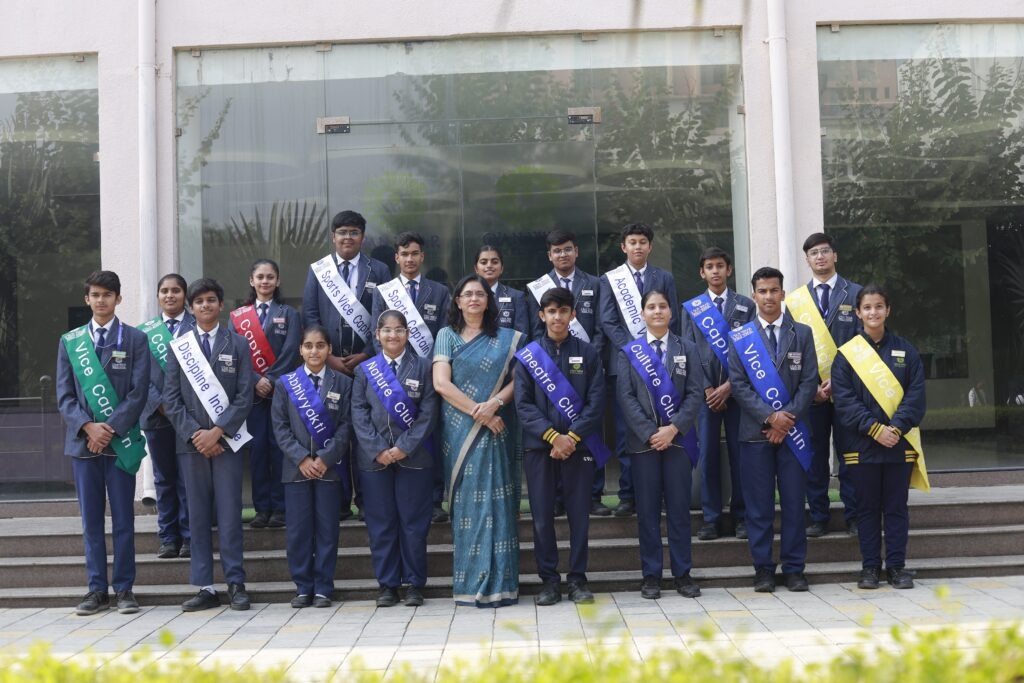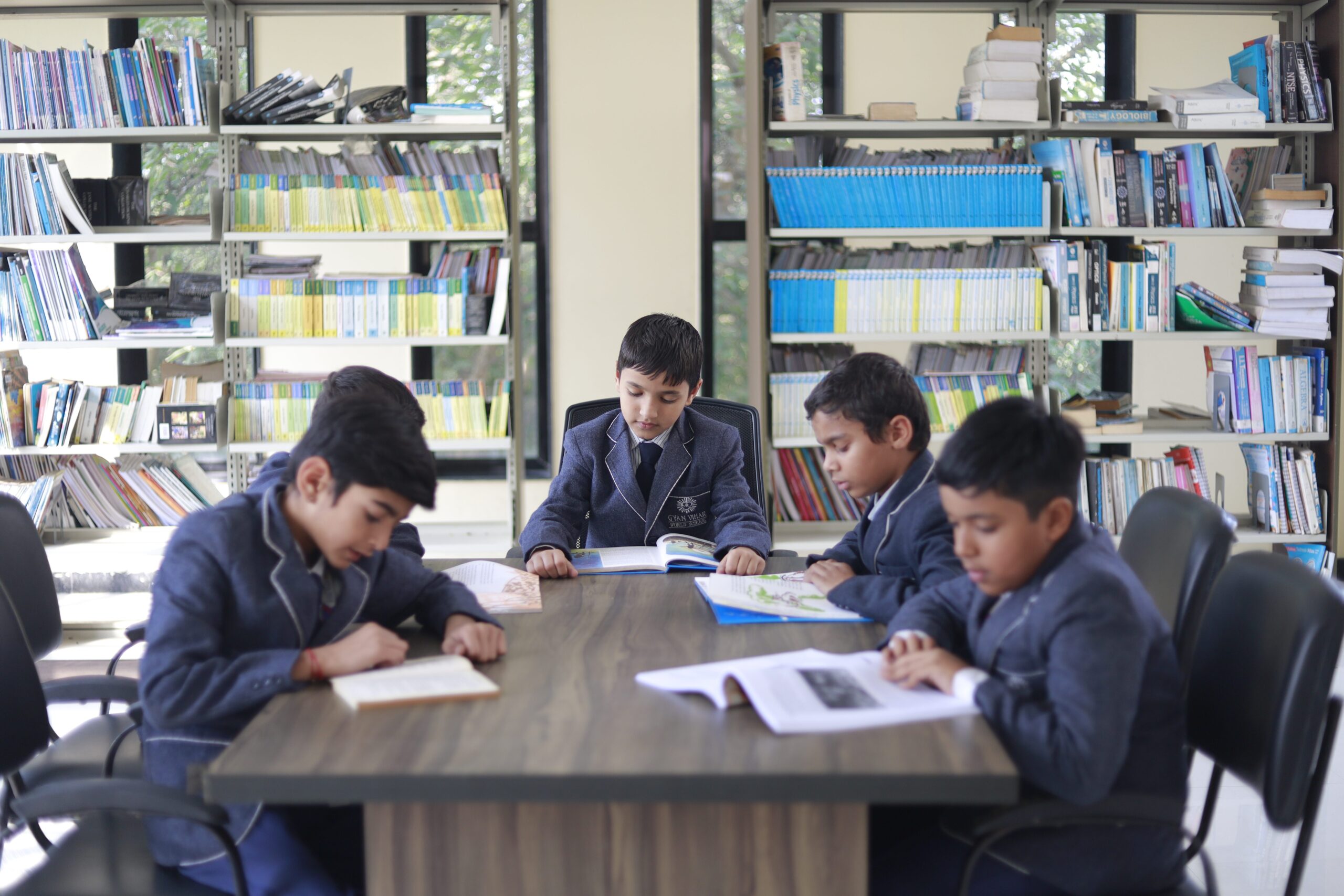In the vibrant tapestry of Indian history, January 26th stands as a day of unparalleled significance, marking the adoption of the Constitution of India in 1950. As we reflect on this historical milestone, it becomes imperative to delve into the lives and contributions of the architects who sculpted the very essence of our nation. At Gyan Vihar World School, recognized as one of the Top Schools in Jaipur, we embark on a journey to illuminate the minds of our students about the Founding Fathers and their pivotal role in shaping the democratic fabric of our country.
As the echoes of the Preamble resonate through the corridors of our institution, we aim to instill a deep understanding of the constitutional ethos in our students. The rich history of the Constitution’s framing involves the sagacious minds of leaders like Dr. B.R. Ambedkar, Jawaharlal Nehru, and Sardar Patel, each contributing their unique vision to the tapestry of our democracy.
In this blog, we unfold the chapters of their lives, exploring the ideals that guided them and the challenges they overcame. Join us in this intellectual voyage as we delve into the stories of these visionary leaders, learning about the profound legacy they left for generations to come. Gyan Vihar World School, among the Best Schools in Jaipur, takes pride in imparting not just education but a sense of historical consciousness and civic responsibility.
The Drafting Committee: Pillars of the Constitution
The Indian Constitution stands as a testament to the tireless efforts of the Drafting Committee, a remarkable team of seven individuals who meticulously crafted its principles and provisions. Each member brought unique expertise and unwavering dedication to the table, forming the formidable pillars upon which the document rests.
- Dr. B.R. Ambedkar, the “Father of the Indian Constitution”: A brilliant jurist and champion of social justice, Dr. Ambedkar’s legal acumen and unwavering commitment to equality shaped the Constitution’s core principles. He played a pivotal role in drafting Articles 15, 17, and 25, guaranteeing fundamental rights like non-discrimination and religious freedom for all citizens, particularly marginalized communities who had historically faced oppression. His legacy transcends legal brilliance, reminding us of the ongoing struggle for equitable rights and the importance of fighting for a truly inclusive society.
- B.L. Mitter, the Architect of the Judiciary: With his profound understanding of constitutional law and judicial systems, Mitter steered the Committee toward establishing a robust and independent judiciary. He meticulously drafted Articles 124 to 147, outlining the structure and powers of the Supreme Court and High Courts, ensuring a vital separation of powers and a framework for impartial justice. His contribution lays the foundation for a legal system that serves as the bedrock of India’s democracy.
- Alladi Krishnaswami Iyer, the Keeper of Ancient Wisdom: A scholar of Sanskrit and Hindu legal traditions, Iyer brought invaluable historical and cultural knowledge to the table. He ensured a harmonious blend of India’s rich heritage with modern legal principles, evident in Articles 25 to 30, which safeguard religious and cultural rights. His contribution signifies the importance of acknowledging and valuing India’s diverse philosophical and legal heritage within the framework of a modern democratic republic.
- K.M. Munshi, the Visionary Economist: As a prominent politician and economist, Munshi understood the challenges of post-independence India and championed social and economic progress. He contributed significantly to Articles 39 to 50, focusing on Directive Principles of State Policy, outlining goals for social welfare, education, and economic development. His vision helped shape a Constitution that not only guarantees rights but also strives for a just and equitable society.
- Mohammed Sadulla, the Champion of Inclusivity: As a leading Muslim leader, Sadulla’s voice ensured the Constitution enshrined principles of religious tolerance and minority rights. Articles 25 to 29, guaranteeing freedom of religion and conscience, owe much to his unwavering commitment to inclusivity. His contribution reminds us that a vibrant democracy thrives on diversity and must protect the rights of all its citizens, regardless of faith or background.
- N. Gopalaswami Iyengar, the Master of Procedures: A meticulous administrator and legal scholar, Iyengar’s expertise lay in procedural matters. He meticulously drafted Articles 54 to 158, establishing the intricate procedures for parliamentary elections, legislative functioning, and administrative conduct. His contribution ensures a smooth and efficient system of governance, upholding the principles of transparency and accountability in our democracy.
- D.P. Khaitan, the Guardian of Liberties: A renowned lawyer and politician, Khaitan focused on safeguarding individual rights and parliamentary procedures. His dedication is evident in Articles 19 to 22, guaranteeing fundamental rights like freedom of speech, expression, and assembly. His contribution reminds us that individual liberties are at the core of a democratic society and must be protected with unwavering vigilance.
These seven individuals, each with their unique perspectives and expertise, came together to draft a document that continues to guide India’s journey. Their tireless dedication, collaborative spirit, and unwavering commitment to a just and equitable society stand as an inspiration for generations to come.
Beyond the Committee: A Spectrum of Contributions
While the Drafting Committee remains at the forefront, the birth of the Indian Constitution owes much to numerous other individuals who played crucial roles in shaping its content and ensuring its acceptance.
- Jawaharlal Nehru, the Visionary Prime Minister: Nehru provided the political leadership and vision needed to guide the Constitution-making process. His commitment to democracy, secularism, and social progress is reflected throughout the document’s principles and provisions. His role reminds us that leadership and political will are crucial for translating ideals into reality.
- Vallabhbhai Patel, the Iron Man of India: Patel’s contribution transcended legal drafting. His efforts in uniting fragmented princely states and integrating them into the Indian Union laid the foundation for a unified nation. Articles 1 to 3, outlining the territorial integrity and federal structure of India, bear his mark. His role highlights the importance of national unity and integration for a strong and functioning democracy.
- Mahatma Gandhi, the Guiding Spirit: While not directly involved in the drafting process, Mahatma Gandhi’s influence on the Indian Constitution is undeniable. His ideals of non-violence, equality, and social justice permeated the document’s very core, providing a moral compass for the architects and shaping the aspirations of the newly independent nation.
Learning from the Spectrum of Contributions
By studying the diverse contributions of individuals like the Drafting Committee members, Nehru, Patel, and Gandhi, we gain a deeper understanding of the complex tapestry of ideas and aspirations that shaped the Indian Constitution. This understanding goes beyond memorizing dates and provisions; it equips us with the critical thinking skills, historical awareness, and ethical values necessary to be responsible citizens and active participants in India’s democratic future.
By immersing ourselves in the world of the Constitution’s architects, we gain a deeper appreciation for:
- The Power of Collaboration: Witnessing the diverse perspectives and expertise brought together by the Drafting Committee highlights the importance of collaboration in creating meaningful change. We learn that collective wisdom and open dialogue are essential for building a just and equitable society.
- The Importance of Vision and Sacrifice: The unwavering commitment and dedication of the architects inspire us to envision a better future and dedicate ourselves to making it a reality. We understand that progress often requires sacrifice and unwavering determination.
- The Ongoing Nature of Democracy: The Constitution is not a static document; it’s a living document that evolves with the needs of the times. By studying the architects’ dedication to adapting to changing circumstances, we are reminded that the responsibility of safeguarding and strengthening our democracy lies with each generation.
Learning from the Architects: Gyan Vihar World School’s Approach
As a leading academic institution among CBSE Schools in Jaipur, Gyan Vihar World School recognizes the invaluable lessons we can learn from the architects and contributors to the Indian Constitution. We provide our students with opportunities to:
- Engage in in-depth research: Students delve into the lives and contributions of historical figures, exploring their motivations, challenges, and enduring legacies.
- Participate in interactive discussions: Lively debates, mock drafting sessions, and role-playing exercises facilitate critical thinking and analysis of the Constitution’s provisions in contemporary contexts.
- Express their understanding creatively: Through art, music, poetry, and other mediums, students translate their learnings into unique expressions, fostering engagement and deeper understanding.
- Connect with the community: We organize outreach programs and workshops, sharing the history and values of the Constitution with the wider community and promoting active citizenship.
Gyan Vihar World School: Embracing the Legacy of the Constitution
As students at Gyan Vihar World School, one of the Best Schools in Jaipur, we carry the torch of the Constitution’s architects forward. We strive to embody their values of justice, equality, and inclusivity in our daily lives and academic pursuits. By engaging with their legacies, we develop the critical thinking skills, ethical values, and leadership qualities necessary to become responsible citizens and future architects of positive change in our communities and beyond.
We believe that by learning from the architects of the Constitution, we can contribute to building a more just and equitable India, honoring their legacy and ensuring that the vibrant tapestry of our nation continues to unfold with each generation.
Remember, Gyan Vihar World School, standing tall among the Top Schools in Jaipur, welcomes you to join us on this journey. Let us explore the stories of the Constitution’s architects together, learn from their wisdom, and build a future where their ideals of democracy, justice, and equality shine brighter than ever.







